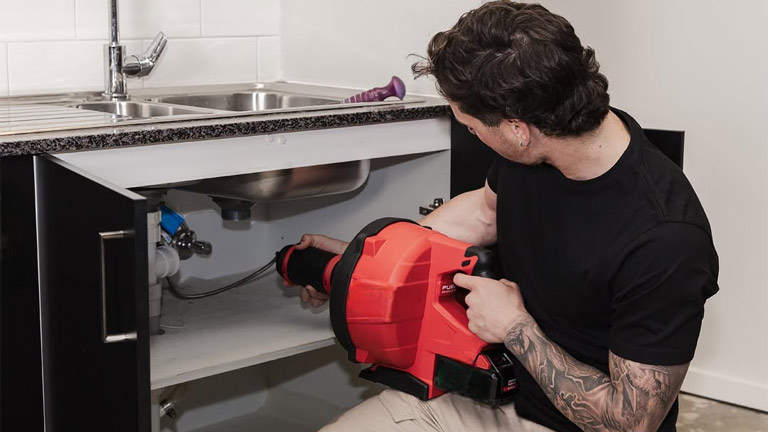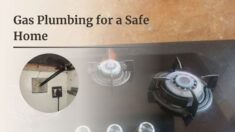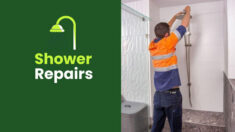
These days, you often call a plumber for both small and large household tasks. The problem arises when a job involves water, and people assume a plumber can handle it. But they don’t know that a plumber has limitations, and they can perform some specific tasks. In this article, I will explain in detail which jobs plumbers are not suitable for, and when you will need another specialist. This will save you time and help you find the right solution faster.
Common Misconceptions and Reasons
Many families have the misconception that plumbers can handle all kinds of household technical work. This misconception stems from the fact that plumbers are often seen working on things like pipes, drains, and bathrooms. Empirically, people assume plumbers can also handle electrical, gas, air conditioning, and building repairs. The truth is that every profession has its own specialized training, equipment, and safety standards. When an expert works outside their domain, the risks increase.
Plumbing Work Plan
A home plumbing work plan is typically created by a collaboration between several professionals, primarily an architect, a civil engineer, and a licensed plumbing contractor. So a single plumber cannot make a proper plumbing plan for your home. It is advisable that when you create your home layout, you should also ask for a home plumbing plan.
Bath Electrical Work
People often hire a plumber to handle bathroom-related electrical work because they are present in the home and readily available. In reality, only an electrical technician or licensed electrician can handle boiler and heater wiring, geyser installation, and electrical panels. Serious short circuits, the risk of fire, and a plumber’s lack of proper insulated tools and safety training make this job risky. If your and your family’s safety is a priority, then call an electrician.
Gas Line and Gas Fitting Work
Work related to gas pipelines and connections is sensitive. Some plumbers can handle minor gas connection work, but for major gas lining repairs, meter replacements, or leakage inspections, a certified gas fitting specialist or a gas company technician is the right choice. Any carelessness related to gas can lead to an explosion or toxic gas leak, so taking shortcuts is dangerous.
Heating, Ventilation, and Air Conditioning Work
AC, heater, and ventilation systems employ electronic and refrigerant-related technology. While a plumber can assist with some basic connections, an HVAC technician is required to repair compressors, refrigerant leaks, and electronic control problems. Incorrect repairs can damage the system and lead to costly repairs.
Building or Structural Work
Replacing pipes often requires breaking down walls or laying new plumbing. Consultation with a civil engineer or experienced contractor is essential for such work. There’s a risk of impact on walls, structures, and foundations. A plumber will be limited to pipework and is not safe to handle structural changes.
Heavy Excavation and Construction Machinery Work
Laying new sewer lines or replacing major pipelines requires excavation machinery and geoengineering. A plumber can dig small holes, but deep excavation, cutting roads, or operating large machinery requires excavator operators and construction crews. Safety standards and permits are also required, which a plumber typically doesn’t handle.
Hazardous Substances Disposal
If asbestos, chemical fluids, or other harmful substances are found in plumbing, a specialized hazard management team is required. Plumbers typically don’t have protective gear and hazard disposal training. In such a situation, it’s wise to contact a professional hazard handling company.
Licenses, Insurance, and Legal Responsibility
Licenses and insurance are crucial for any technical work in your home. Sometimes, if a plumber doesn’t have insurance, you could face financial difficulties if there’s a breakdown or damage. Different certifications are required for gas, electrical, and building construction. It is in your best interest to ask for certification and insurance information before the work.
What You Can Do Yourself
You can take some simple steps yourself. Take photos of the problem before starting work and share them with experts. Check the plumber or technician’s license and reviews. Ask for a written estimate and guarantee for the work. Be clear in your communication to avoid any misunderstandings. This can help prevent future problems.
When to Call Whom to Call: A Simple Guide
A plumber is the right choice for common water tank, tap, or pipe leaks in your apartment. Plumbers are reliable for pipe blockages, drain clearing, and bathroom fittings. However, if the problem is electrical or there’s a gas smell, call a gas/electrical specialist immediately. For a major sewer line replacement or extensive wall work, it is best to consult a contractor and a civil engineer.


